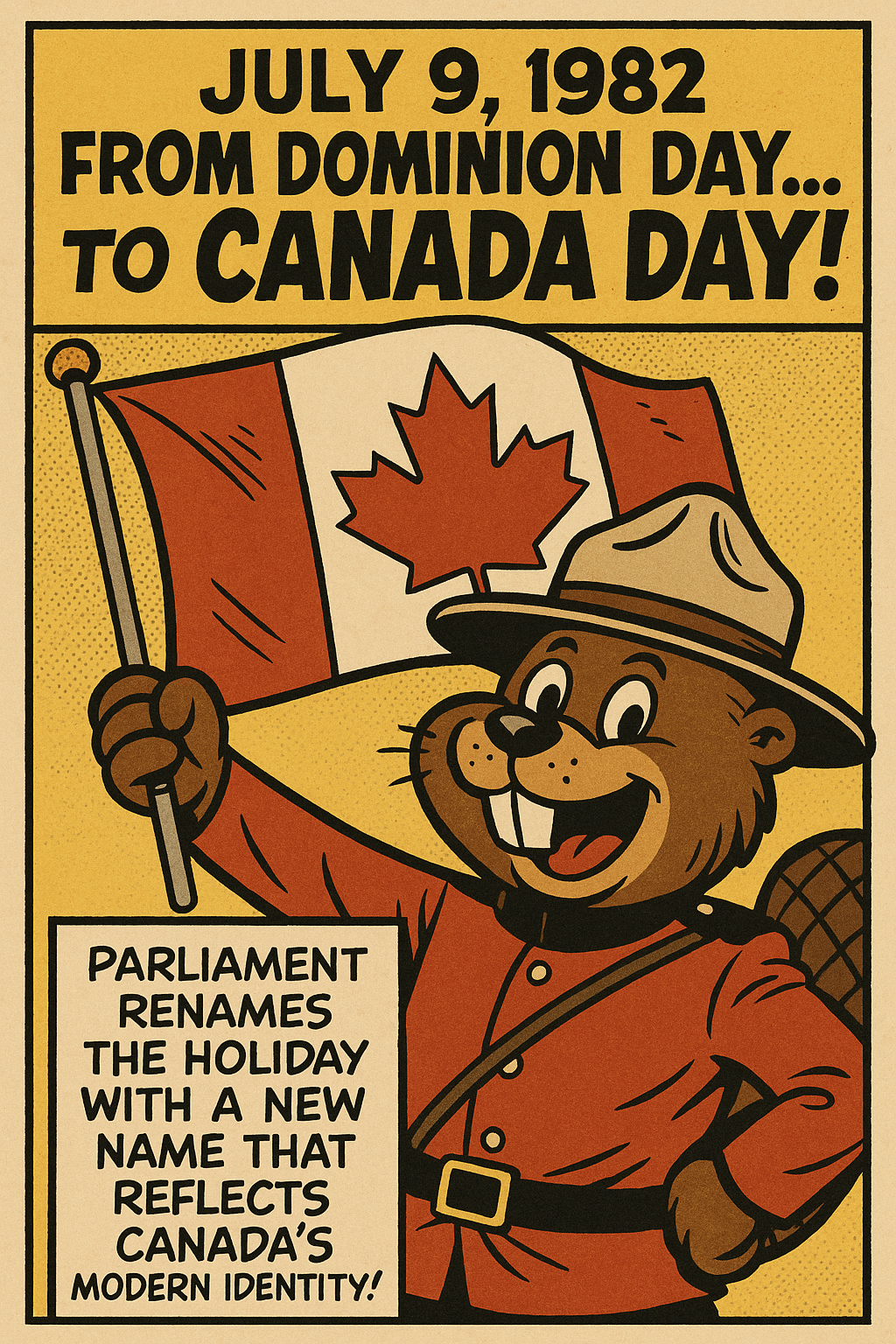
Today In Canadian History July 9: A Nation's New Name: The Day Dominion Day Became Canada Day
Share
For 115 years, Canadians celebrated their nation's birthday on July 1st as "Dominion Day." The name, reflecting the country's status as a Dominion in the British Empire, served the nation well. But as Canada matured throughout the 20th century, a subtle but significant shift in identity was taking place. On this day, July 9, 1982, that shift was codified when a private member's bill to change the name of the national holiday to "Canada Day" passed through Parliament with astonishing speed.
The idea was not new; proposals to change the name had been debated for decades. Many felt the term "Dominion" was a colonial relic, and that a simpler, more direct name was needed to reflect Canada's status as a fully independent nation. The patriation of the Constitution and the signing of the Charter of Rights and Freedoms earlier that same year had created a surge of national pride, setting the perfect stage for the change.
The final push was a masterclass in political opportunism. On a quiet Friday afternoon in the House of Commons, with only a handful of MPs present, a Liberal backbencher brought the bill forward. In a matter of minutes, it passed through all three readings with unanimous consent and was sent to the Senate, much to the surprise and chagrin of many who had wanted a more robust debate. Despite some opposition in the Senate, the bill received Royal Assent. The change from Dominion Day to Canada Day was more than symbolic; it was a declaration of a modern, independent Canadian identity, severing a linguistic tie to the colonial past and embracing a name that was simply, and proudly, our own.
